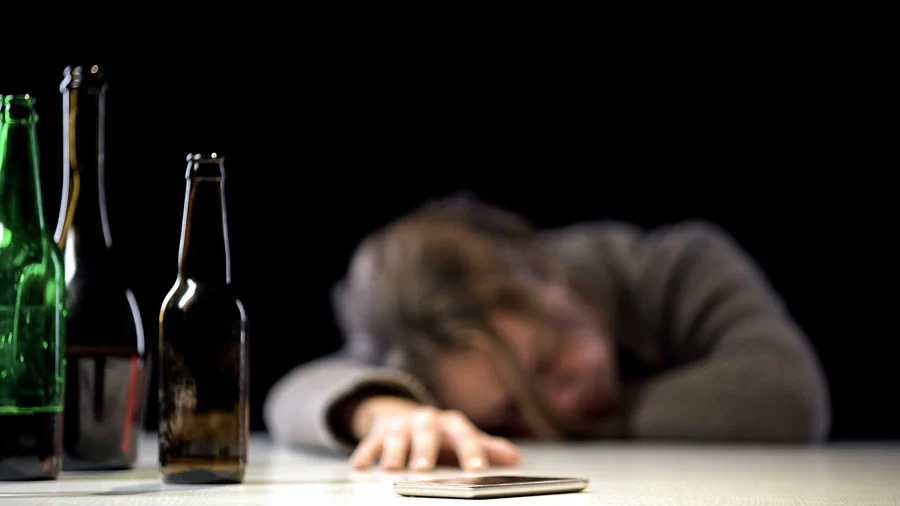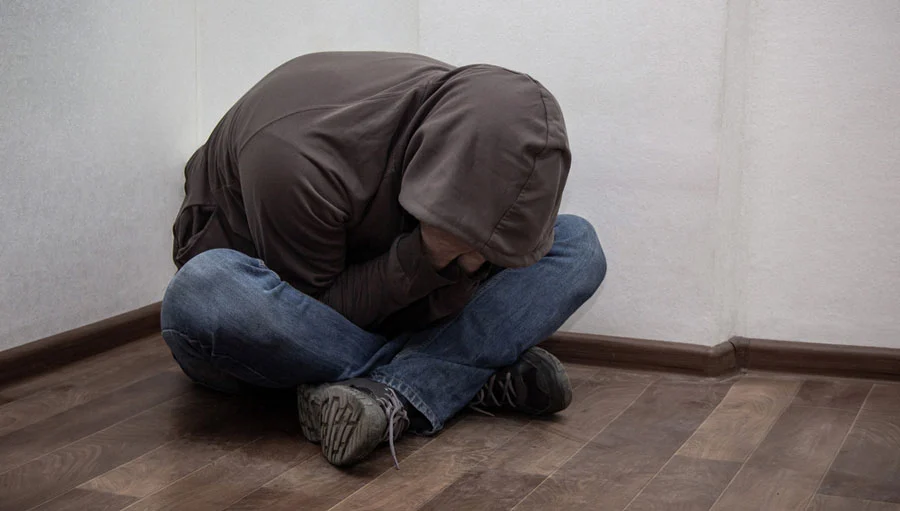My Experience of Going to the Brink of Death Before Getting Sober
Alcoholism drove me to almost lose my life multiple times. I suffered from alcohol abuse for nearly two decades before I sought treatment at South Shores Detox and Recovery. My alcohol use disorder led to many dark times and alcohol withdrawal led to some of the worst discomfort I’ve ever experienced.
Alcohol withdrawal is one of the few forms of withdrawal that can be fatal. Alcohol withdrawal symptoms are painful and can not only break you physically but mentally as well. For those who are long-term drinkers, severe alcohol withdrawal symptoms can lead to hallucinations due to delirium tremens.
But can you die from withdrawals from alcohol?
Substance abuse is difficult to overcome no matter what your drug of choice is. When it comes to drinking, it’s made even more difficult by how socially acceptable alcohol is. Alcohol is everywhere. From the time you are young, it is glorified as something fun and exciting. Peer pressure leads a lot of teenagers to start drinking at an early age.
My post today will give a direct answer to the question: can you die from withdrawals from alcohol? And then I will share about just how close I came (spoiler alert: yeah, you can)
Can You Die from Withdrawals from Alcohol: Fears vs Realities
As your alcohol intake increases over time, you run the risk of becoming physically dependent on it. We’ve all heard of hangovers, but the symptoms of alcohol withdrawal are much worse. Early into my alcohol addiction, I experienced moderate symptoms that I tried to explain away. I made every excuse possible.
Cutting back or quitting wasn’t on my radar at all. If I went without alcohol, I would become irate and unapproachable. Eventually, my alcohol abuse got to the point where I couldn’t stop drinking without experiencing dangerous withdrawal symptoms.
To put it bluntly, alcohol abuse and addiction will eventually control your life and dictate every decision that you make. If you are in a situation where you can’t stop yourself, read more to find out how I did it and overcame severe alcohol withdrawal syndrome with the help of South Shores.
By the time you get to where I did with drinking on the daily, the seizures and DT’s that come with quitting drinking can be fatal.
First: The Common Alcohol Withdrawal Symptoms
The timeline for alcohol withdrawal symptoms depends on the level of your addiction. When you become physically addicted to alcohol, the withdrawal symptoms will be more obvious. In my experience, when alcohol withdrawal occurs, it hits you like a ton of bricks.
Within six to eight hours after my last drink, I would get anxiety, cold sweats, elevated blood pressure, and mild to severe headaches. At this point, my head would spin. All I could think about was drinking. The discomfort was brutal, and these weren’t even the most severe symptoms.
After about twelve to twenty-four hours, my withdrawal symptoms would include heavy sweating, stomach, and digestive issues, and my anxiety would worsen. Many alcoholics can suffer from withdrawal seizures following twenty-four hours without alcohol.
Unfortunately, the symptoms of alcohol withdrawal prevent many addicts from trying to get clean.
Then: When Delirium Tremens Sets In
Delirium tremens is the scariest of all alcohol withdrawal symptoms. Symptoms of delirium tremens include shaking, confusion, and hallucinations. Delirium tremens is a severe form of alcohol withdrawal that requires medical attention.
This is one of the reasons doctors and other medical professionals do not recommend quitting cold turkey. I never experienced delirium tremens, but I have known people who have. My own grandfather died from delirium tremens. I witnessed some of his behavior as a result of delirium tremens, but I was too young to know what was going on.
It wouldn’t be until my own struggle with alcohol addiction that I realized I could end up in the same scenario. The mild symptoms I could handle. Once you get into the realm of hallucinations and delirium, things get really freaky.
A Few More Physical And Mental Symptoms Of Alcohol Addiction
Alcohol use disorder almost always results in a disruption in normal bodily and mental function. When it comes to the physical signs of alcoholism, there are many health problems that heavy drinking causes. The alcoholic face is one of the most obvious signs.
Alcohol flush reaction occurs when your body can’t fully digest the alcohol consumed. This causes redness in the face and a change in skin tone. Many alcoholics suffer from skin sores and other abscesses. Alcohol use weakens your immune system, preventing your body from fighting off infections and sores.
Because drinking is a significant central nervous system depressant, the mental side effects can include depression, irritability, and the inability to think straight. During the height of my alcoholism, I would have severe brain fog.
Along with high blood pressure and bouts of hypertension, I was unable to make everyday decisions and had delayed reactions to everything. It was as if I was wandering around in a constant loop of confusion and tentativeness.
Can You Overcome Severe Withdrawal Symptoms On Your Own?
Many people who suffer from alcohol use disorder have a hard time quitting and getting treatment for drinking because of alcohol withdrawal. When alcohol withdrawal occurs, you will do anything to avoid it. Because alcohol is easy enough to acquire, many addicts can’t get themselves to stop without medical supervision.
It’s not like you have to wait around for a drug dealer. You can go into any store or bar and get a drink. Because of the constant desire to drink, many alcohol distributors have made it so you can get bottles of alcohol in all shapes and sizes.
Most liquor stores carry giant bottles of liquor as well as tiny ‘nip’ size bottles. In my experience, I couldn’t treat alcohol withdrawal on my own. I tried many times to stop drinking without any help, and I never lasted more than two days.
My alcohol intake would inevitably continue once the most severe withdrawal symptoms set in. I could deal with mild withdrawal symptoms early on in my addiction, but once I was years into my addiction the withdrawal was all-consuming.
Finally: Seeking Treatment For Alcohol Dependence
I went to rehab four times throughout my alcohol addiction before I finally got sober via South Shores. Addiction treatment is a touchy subject for many addicts. I’ve heard some addicts say they never want to get clean. That level of addiction is scary, but I know how it feels. I felt that way myself for many years.
Despite all the dangerous symptoms of my alcohol consumption, I continued to drink without giving treatment any thought. I was over a decade into my alcohol misuse before I tried recovery for the first time. It lasted three days. The second time around, I lasted two weeks. Each time I tried, I would get a little more sober time under my belt.
When I finally arrived at South Shores for my fifth attempt at getting clean, I had hit rock bottom. I was homeless and spending every cent I had on booze. I would panhandle and steal from friends and family. Alcohol affects many more people than just the person drinking. My family could do nothing but watch me spiral into darkness and despair.
Weighing Your Treatment Options for Alcohol Detox in Safety
When you make the decision to try and get clean, it can be overwhelming in many ways. Where do you go? How do you know you’ve picked the right rehab? How will you afford it? It takes a bit of work, which can be scary for someone who is actively avoiding life’s regular responsibilities. There is also the looming detox process, which scares many addicts away from getting clean.
Achieving long-term recovery for any extended period of time is a big challenge. It was honestly the biggest challenge I’ve ever taken on. When I finally chose South Shores to begin my recovery journey, I was terrified. Every aspect of the process frightened me, specifically the detox process.
The medical care I received at South Shores was incredible. Detox wasn’t without its discomfort, but my medical team made it as smooth as they possibly could. I was able to avoid the worst of withdrawal, including alcohol withdrawal seizures. Once I got over my physical dependence, it was time for me to start focusing on getting my mind right.
Your Preferred Support Groups As A Preventative
Entering a treatment facility in a local SoCal setting is step one of the recovery process. Once you achieve sobriety, attending support groups can be a great way to deter you from going back to your old habits. My past withdrawals were another big reason I desperately wanted to stay sober. I did not want to go through the withdrawal process again.
No matter what your level of addiction is, all addicts have a high risk of relapse. Some more than others. If you don’t have a good support system, you will find yourself at a higher risk of relapse. For heavy drinkers like myself, finding the right support system was key to my sobriety. I still attend support groups as much as possible in order to maintain what I’ve achieved so far.
Get Help Quitting Alcohol And Other Drugs at South Shores
When you receive treatment, you are given an option to do the right thing or fall back into your old ways. Eventually, your addiction is up to you. You can have the best addiction treatment in the world, but if you aren’t ready to kick your addiction, none of it matters.
I get it. The path from the most severe form of alcoholism to the first day of sobriety is a complicated one. A lot of tough decision needs to be made. But accountability and honesty are your best friends.
Because of what I learned at South Shores Detox and Recovery, I have the tools to continue my sobriety and also try and help others achieve what I have. Sobriety is the greatest gift I’ve ever been given. Are you ready to receive that gift?




